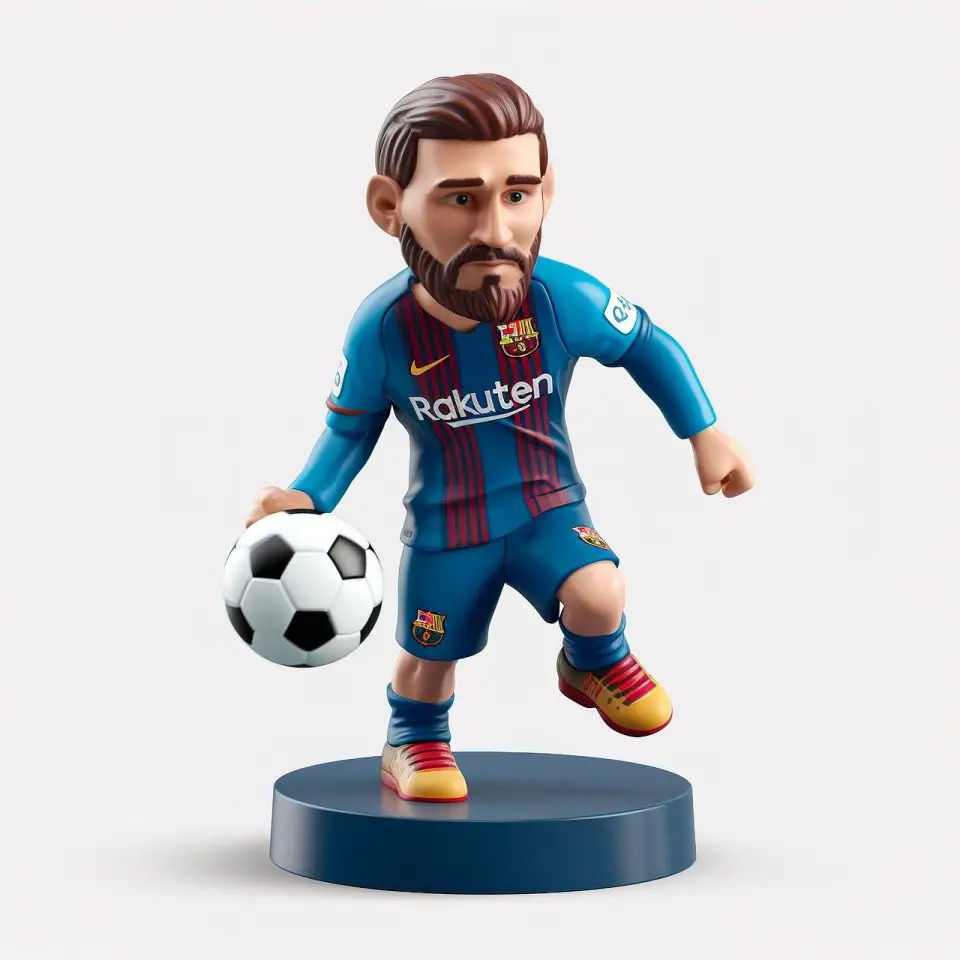In a groundbreaking development that has the potential to reshape Major League Soccer, reports indicate that Lionel Messi has made the decision to join Inter Miami. Although neither Messi nor the club have made an official announcement or disclosed specific details of the agreement, it appears that MLS and Miami have emerged victorious in a fiercely competitive race to secure the services of the world’s greatest player.
The deal is believed to involve lucrative commercial contracts with Apple and Adidas, two prominent partners of MLS, further solidifying Messi’s impact on the league. Additionally, there are indications that Messi may have the option to acquire a minority stake in Inter Miami, a move that would undoubtedly elevate the profile of soccer in the United States.
Following the expiration of his contract with Paris Saint-Germain at the end of June, Messi could potentially make his debut for Miami in either July or August. However, he will face the formidable challenge of revitalizing a struggling franchise that currently languishes at the bottom of the standings and has often grappled with dysfunction.
According to sources close to the player, an intriguing aspect of Lionel Messi’s decision to choose Inter Miami over a lucrative offer from Saudi Arabia was the influence of his wife. Reports suggest that Messi’s wife, who has a strong affinity for the vibrant and cosmopolitan city of Miami, played a pivotal role in steering the family’s preference towards the American destination.
For the past two decades, Messi has been synonymous with Barcelona, achieving remarkable success and becoming an emblem of the club’s triumphs in the 21st century, including four Champions League titles and ten La Liga championships. His departure from Barcelona in 2021, prompted by a financial crisis at the club, was an unfortunate and involuntary turn of events. He subsequently joined PSG, but after two underwhelming seasons, both parties agreed to part ways earlier this year.
As a soon-to-be free agent, Messi had three potential options on the table: an enticing and financially lucrative offer from Saudi Arabia, a creative yet less lucrative proposition from Inter Miami, and a nonexistent offer from Barcelona.
Initial reports suggested that Messi would have preferred to return to Barcelona, as his father and agent, Jorge Messi, stated on Monday that “Leo wants to return to Barca.” However, the club’s ongoing financial woes and the spending restrictions imposed by La Liga hindered the possibility of a reunion. Reports indicate that Barcelona never extended a concrete proposal with guarantees to Messi’s camp, primarily due to their inability to do so. While there were discussions about potentially offloading several players to accommodate Messi within the spending caps, the club essentially asked him to wait until later in the summer for an uncertain opportunity. Messi’s camp reportedly informed Barcelona this week that he would not be returning.
Thus, the decision ultimately came down to Miami, where Messi already owns property and frequently visits, and Saudi Arabia, which has financially supported him through lucrative tourism promotion contracts. Despite still being at the top of his game, Messi did not receive any other lucrative offers from Europe.
In the preceding months, Barcelona dominated the headlines, while Saudi Arabian authorities prepared for Messi’s potential arrival, generating significant media attention. In contrast, Inter Miami and MLS officials, led by majority owners Jorge and Jose Mas, strategically operated in silence. Reports suggest that they presented a final proposal to Messi’s camp last week, keeping their plans under wraps. Behind the scenes, they reportedly surged ahead in the race this week.
Messi was likely enticed by the allure of South Florida’s lifestyle and the vibrant Argentine community in Miami, which will soon be home to an Argentine national soccer training center. The American market also presented enticing opportunities, including collaborations with Apple, which recently announced a documentary featuring Messi, and Silicon Valley, where Messi and his family played a role in launching an investment holding company focused on the intersection of soccer and technology in 2022.
All these factors align with Messi’s previous expressed desire to play in the United States. Now, that long-awaited day is approaching.
His move to the U.S. is expected to mark the conclusion of his European adventure
and his dominance in elite club soccer. While MLS has experienced significant growth, it still operates outside the Euro-centric spotlight and ranks below top-tier domestic competitions in Spain or France.
Meanwhile, Inter Miami currently finds itself at the bottom of the Eastern Conference in MLS, with an interim coach following the recent dismissal of Phil Neville. Speculation has linked Gerardo “Tata” Martino, Messi’s former coach with the Argentina national team, to the vacancy.
Nonetheless, the transition to the American soccer landscape should be less physically demanding compared to the rigorous European club circuit, potentially allowing Messi to extend his illustrious career. He is expected to lead Argentina into the 2024 Copa America, which will be hosted in the U.S. Furthermore, he could set his sights on the 2026 World Cup, which will also be co-hosted by the United States.
Note: The information in this rewritten article is based on the original story from Yahoo Finance. The attribution to Yahoo Finance is maintained, but the content has been rewritten in VBNG style to comply with journalistic standards.

